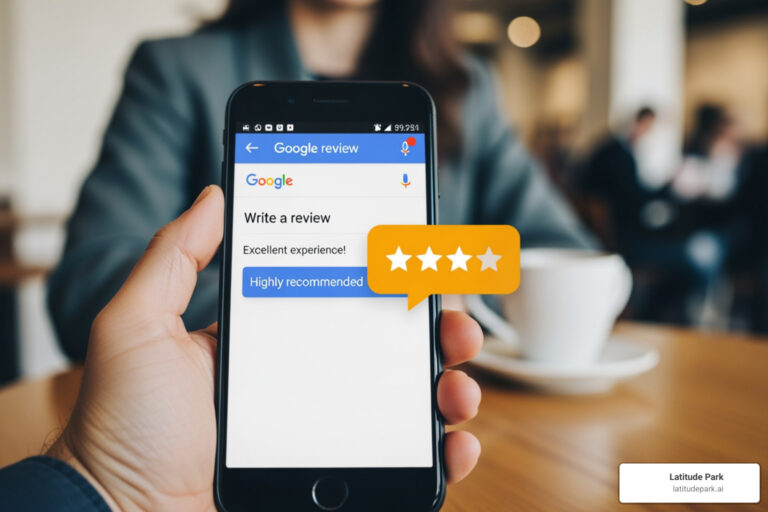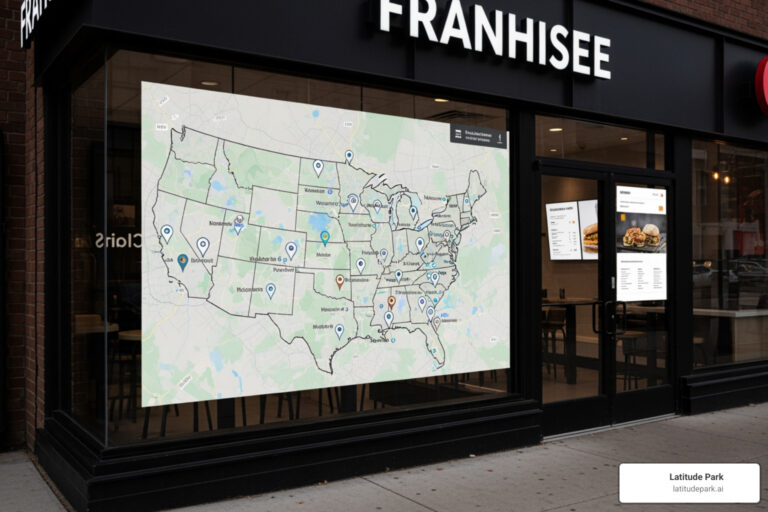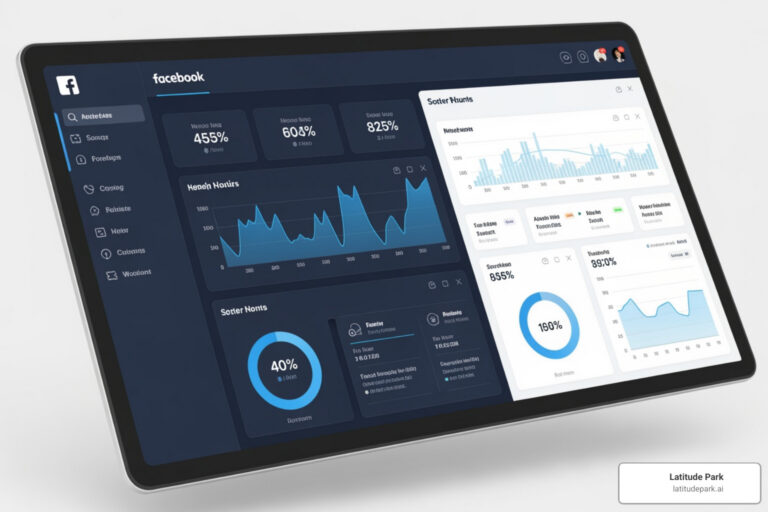Why Ecommerce Campaign Management is Your Gateway to Profitable Growth
Ecommerce campaign management is the process of planning, executing, and optimizing marketing campaigns across digital channels to drive traffic, conversions, and loyalty for online stores. It involves setting clear objectives, managing campaigns across SEO, PPC, social media, and email, and using data to refine performance from customer awareness through retention.
The numbers tell the story: global ecommerce sales are projected to exceed $8 trillion by 2027. With organic SEO generating 8 times more traffic than paid media and email marketing driving $36 for every dollar spent, a strategic approach is essential.
Today’s competitive landscape demands a comprehensive, data-driven strategy. Customers engage with brands across an average of eight different digital channels, making coordinated campaign management critical for success. This guide will show you how to build and optimize ecommerce campaigns that drive measurable growth.
I’m Rusty Rich, founder of Latitude Park. With over 15 years of experience, I’ve helped businesses, particularly multi-location franchises, use effective ecommerce campaign management to transform their online stores into profitable growth engines.
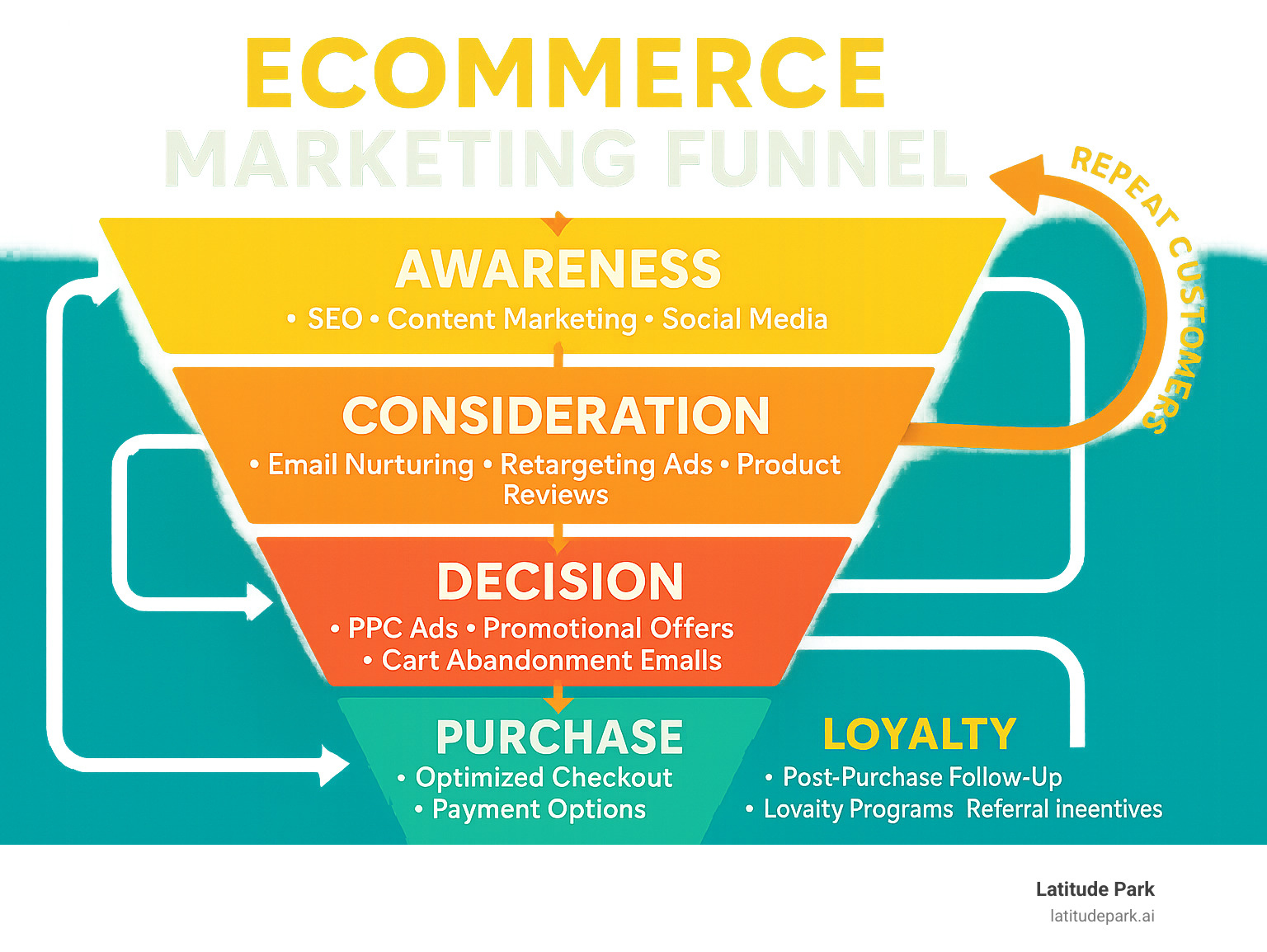
The Foundations of a Winning Ecommerce Marketing Strategy
Successful ecommerce campaign management requires a holistic approach where all channels—SEO, paid ads, social media, and email—work in harmony. Customers interact with brands across multiple touchpoints, often using eight different digital channels before making a purchase. Your marketing must be integrated and consistent everywhere they engage with you.
The foundation is a deep understanding of your customer journey. Customer journey mapping helps you identify the channels your audience uses and the questions they have at each stage. From there, set SMART goals (Specific, Measurable, Actionable, Realistic, Time-bound) and allocate your budget strategically. Use data from your analytics and CRM to perform detailed target audience identification and create accurate buyer personas. This data-driven market research is the key to creating Integrated Digital Strategies where each customer engagement channel supports the others.
Defining Your Objectives and KPIs
Clear objectives are essential for effective ecommerce campaign management. Common goals include increasing brand awareness, driving traffic, generating leads, and boosting sales. To track progress, you need Key Performance Indicators (KPIs).
Crucial KPIs include:
- Conversion Rate: The percentage of visitors who complete a desired action, like making a purchase.
- Customer Acquisition Cost (CAC): The total cost to acquire a new customer.
- Average Order Value (AOV): The average amount spent per order.
- Customer Lifetime Value (CLV): The total revenue expected from a single customer over time.
- Return on Ad Spend (ROAS): The revenue generated for every dollar spent on advertising.
These metrics provide the feedback needed to optimize your campaigns. For a deeper dive, see our guide on How to Measure Digital Marketing Success.
The Crucial Role of Data in Campaign Optimization
In ecommerce campaign management, data is essential for delivering the personalized experiences customers expect. With 73% of customers expecting better personalization, a complete view of their journey is non-negotiable.
Data-driven decisions begin with collecting the right information. First-party data, gathered from your website, email sign-ups, and customer interactions, is invaluable. Transactional data reveals purchase patterns, while behavioral data shows how users steer your site.
Modern Customer Data Platforms (CDPs) unify this information, enabling powerful customer segmentation. Instead of generic messaging, you can create targeted campaigns based on specific interests and behaviors, such as showing personalized ads to users who browsed a certain product category. This ability to adapt to customer needs is what separates successful campaigns from those that get ignored and is a core concept in AI Digital Marketing: Opportunities & Challenges.
Mastering Omnichannel Ecommerce Campaign Management
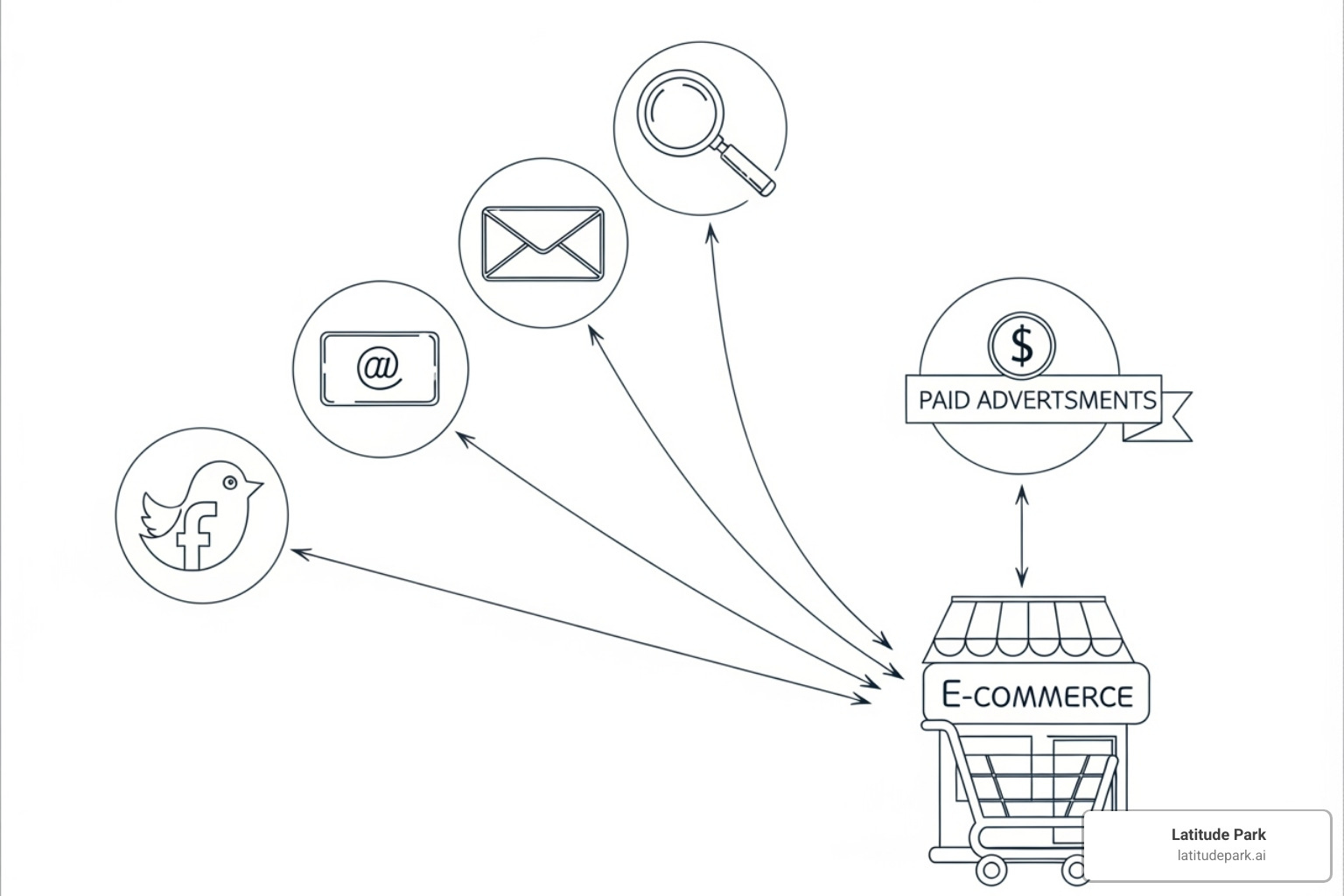
Effective ecommerce campaign management creates a seamless omnichannel experience where all marketing channels work together. Customers expect a consistent brand experience whether they find you on social media, open an email, or click a search ad. Integrated campaigns that maintain consistent branding and messaging across the entire customer journey build trust and drive conversions.
Driving Organic Growth with SEO and Content Marketing
Organic growth is the foundation of sustainable ecommerce campaign management. As detailed in our E-commerce SEO Strategies: Boost Online Store Visibility guide, it starts with keyword research to understand customer search intent. On-page SEO involves optimizing pages with relevant keywords, while technical SEO ensures your site is fast, mobile-friendly, and secure. High-quality content like buying guides and blog posts solves customer problems and signals value to search engines. Don’t neglect video marketing; with YouTube being the second-largest search engine, product videos and tutorials build immense trust and engagement. A top Google ranking is powerful, as the #1 result is ten times more likely to be clicked.
Accelerating Sales with Paid Advertising
While organic builds a foundation, paid advertising provides immediate momentum. A strategic approach to budgeting and keyword segmentation is crucial. Focus ad spend on high-intent keywords to reach users ready to buy, and use negative keywords to avoid irrelevant clicks. Retargeting campaigns are highly effective for reaching warm audiences who have already shown interest. Google Shopping Ads are particularly powerful, converting 30% better than text ads by visually showcasing products in search results. You can learn more in our guides on Paid Google Ads and How SEO and PPC Work Together.
Building Community and Engagement with Social Media
Social media turns ecommerce campaign management into a two-way conversation. With 63% of the global population on social platforms, choose the right ones for your audience, whether it’s TikTok for viral potential, Instagram for visual storytelling, or Facebook for community building. Influencer marketing is highly effective, with many younger consumers trusting influencers for product findy. Encourage and repurpose user-generated content (UGC) to build social proof, as nearly 70% of online shoppers read reviews before buying. Features like social commerce and diligent management of online reviews further streamline the path to purchase and build your brand’s reputation. Explore these topics in our Ultimate Guide to Social Media Marketing.
Nurturing Leads and Loyalty with Email & SMS Marketing
Email and SMS are powerhouses for turning buyers into loyal customers, with email marketing delivering an ROI of $36 for every dollar spent. Success hinges on personalization and segmentation. Use automated journeys to deliver the right message at the right time. A strong welcome series engages new subscribers when their interest is highest. Abandoned cart recovery emails can reclaim over 10% of lost sales, while post-purchase follow-ups build trust and encourage repeat business. SMS marketing offers immediate communication for time-sensitive promotions and updates, but should be used thoughtfully to respect customer preferences.
Personalization and Loyalty: The Keys to Repeat Business

Acquiring a customer is hard; earning their repeat business is where profitable growth happens. Successful ecommerce campaign management focuses on turning one-time buyers into loyal fans by nurturing the relationship long after the first purchase. Every interaction, from the post-purchase experience to how you handle customer feedback, is an opportunity to build a lasting connection.
Best Practices for Effective Ecommerce Campaign Management and Personalization
Generic marketing no longer works. Today, 73% of customers expect better personalization, and 65% expect companies to adapt to their needs. Your ecommerce campaign management strategy must be dynamic.
Use dynamic content on your website and in emails to show products based on a customer’s browsing history. Implement AI-powered product recommendations that offer genuinely helpful suggestions. Behavioral targeting allows you to trigger personalized follow-ups based on user actions, like abandoning a cart. Continually refine your approach with A/B testing to find what resonates most with your audience. Furthermore, interactive product visuals can make customers 65% more likely to purchase by increasing their confidence in the product. Our approach to Enhancing Precision Ad Targeting: Meta Audience Plus helps deliver these tailor-made ad experiences.
Building a Loyal Customer Base
Loyalty is earned through consistent, positive interactions. Loyalty programs that offer tangible value, like points-based reward systems or tiered VIP benefits, make customers feel appreciated. Simple perks like free shipping thresholds and birthday discounts add a personal touch.
Provide exclusive offers or early access to sales for your best customers to create a sense of community. Proactive customer service that resolves issues before they escalate creates memorable, positive experiences. Finally, encourage and leverage online reviews. Nearly 70% of online shoppers read them, and positive reviews provide powerful social proof you can use across all marketing channels. Our Reviews & Reputation services can help manage this critical aspect of building customer trust.
The Future of Ecommerce Marketing: AI, Tools, and Global Expansion
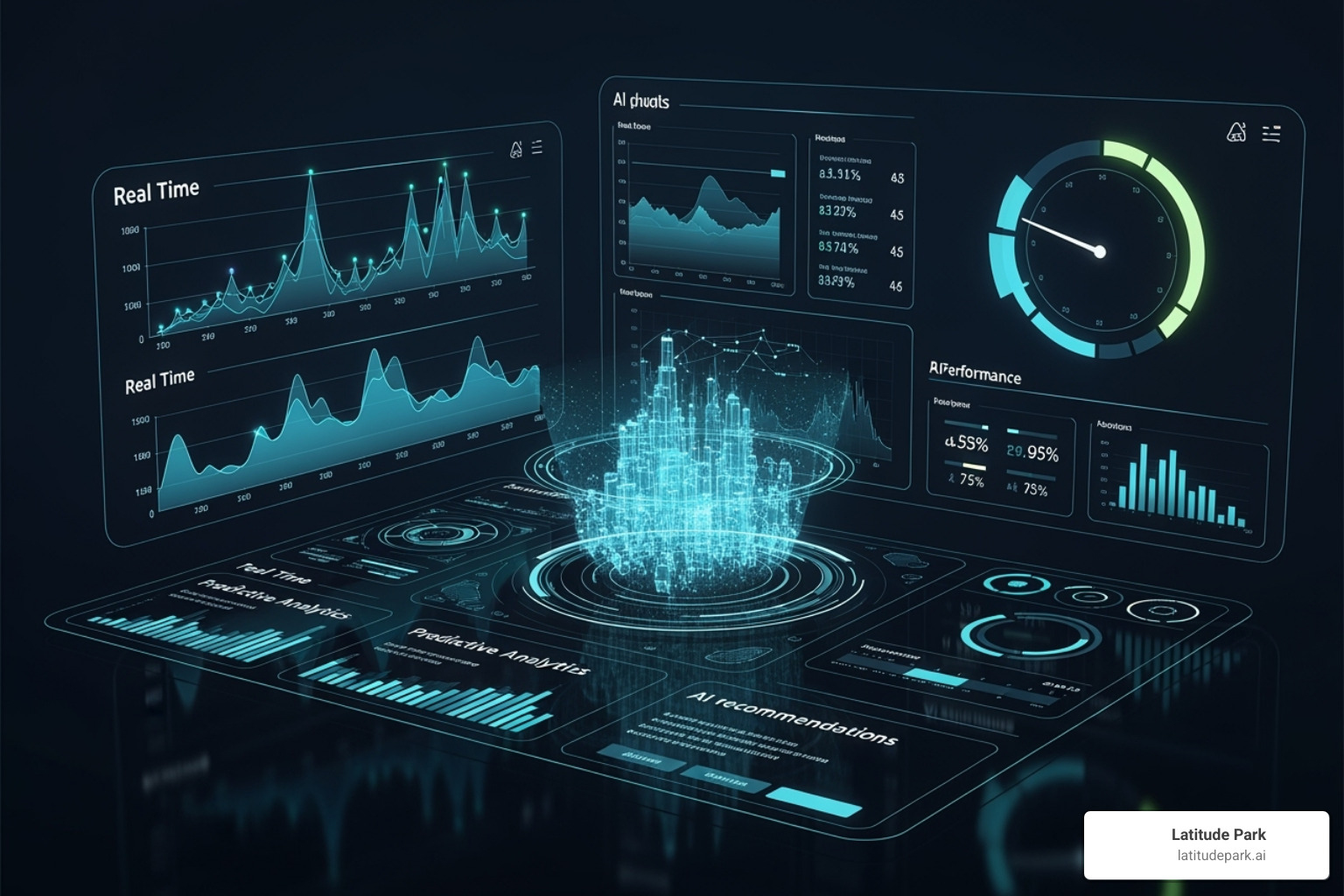
The world of ecommerce campaign management is constantly evolving with new technologies and shifting customer expectations. Staying ahead requires embracing artificial intelligence, leveraging the right tools, and building scalable systems for growth.
Leveraging AI and Emerging Technologies in Ecommerce Campaign Management
Artificial intelligence is no longer the future of ecommerce campaign management—it’s the present. Marketers primarily use AI to write content and personalize messaging. Generative AI can create product descriptions and ad copy in seconds, with professionals reporting saving over 6 hours per week. AI-powered personalization tools analyze customer data to deliver hyper-relevant experiences at scale. Predictive analytics helps forecast trends and customer behavior, while AI-powered chatbots offer instant 24/7 support. AI also improves voice search optimization and automates repetitive tasks, boosting increased efficiency and freeing up your team for strategic work. This evolution is a key theme in The Future is Now: Digital Marketing Trends 2025.
Essential Tools and Platforms for Success
The right tools are critical for effective ecommerce campaign management. Your toolkit should include:
- Ecommerce Platforms: Shopify and BigCommerce provide the backbone for your online store.
- Analytics Tools: Google Analytics is essential for understanding user behavior, while tools like Crazy Egg offer visual heatmaps.
- SEO Tools: Ahrefs and Moz are vital for keyword research, site audits, and backlink analysis.
- CRM Platforms: HubSpot, Salesforce, and Zoho CRM integrate sales, marketing, and service functions.
- Email & Social Media Tools: Platforms like Klaviyo, Mailchimp, Buffer, and Sprout Social help you nurture leads and manage your social presence efficiently.
- Optimization Tools: Optimizely and Hotjar assist with A/B testing and understanding user behavior to improve conversion rates.
Adapting Your Strategy for International Markets
International expansion requires a thoughtful approach to ecommerce campaign management, a process we’ve refined through our work with franchises. Success depends on localization. This means more than just translation; it’s adapting content, imagery, and marketing messages to reflect local cultural nuances. You must also display local currency and payment methods and adjust pricing for local market conditions. Navigating international shipping and logistics transparently is key to managing customer expectations. Global SEO practices, like using hreflang tags and building local backlinks, are also crucial. Finally, geo-targeting and multilingual customer support ensure the experience feels native and trustworthy for every customer. Learn more in our guide to Digital Marketing Strategies for Franchises.
Frequently Asked Questions about Ecommerce Campaign Management
Here are answers to common questions about ecommerce campaign management.
What are the core components of an effective ecommerce marketing strategy?
An effective strategy integrates four core components:
- Clear Objectives & KPIs: Define what success looks like for your business (e.g., increased sales, higher AOV).
- Deep Audience Understanding: Use data to create detailed buyer personas and map the customer journey.
- Data-Driven Approach: Base decisions on analytics, not guesswork.
- Integrated Channel Mix: Use SEO, paid ads, social media, and email marketing in a coordinated effort to engage customers at every touchpoint.
How can I measure the success of my ecommerce campaigns?
Measure success by tracking Key Performance Indicators (KPIs) that align with your goals. The most important KPIs for ecommerce are:
- Conversion Rate: The percentage of visitors who make a purchase.
- Customer Acquisition Cost (CAC): How much it costs to gain a new customer.
- Average Order Value (AOV): The average amount spent per purchase.
- Customer Lifetime Value (CLV): The total projected revenue from a customer.
- Return on Ad Spend (ROAS): The revenue earned for every dollar spent on advertising.
What role does AI play in modern ecommerce marketing?
AI is a critical tool in modern ecommerce campaign management. It improves efficiency and effectiveness in three main ways:
- Task Automation: AI generates content like product descriptions and ad copy, saving significant time.
- Personalization at Scale: It analyzes vast amounts of customer data to deliver highly individualized product recommendations and messages.
- Predictive Insights: AI forecasts sales trends, identifies at-risk customers, and helps optimize pricing and inventory, allowing for proactive strategy adjustments.
Conclusion: Unifying Your Campaigns for Sustainable Growth
Successful ecommerce campaign management is about unifying your efforts. When strategic planning, data-driven decisions, personalized experiences, and smart technology work together, the result is sustainable growth. This integrated approach creates a continuous cycle of improvement: launch, gather data, learn, and optimize.
For businesses with multiple locations, like franchises, orchestrating campaigns across platforms like Meta is even more critical to maintain brand consistency while appealing to local markets. The goal is to create a smooth and delightful customer journey, meeting customers with the right message at the right time.
At its core, success will always come down to understanding your customers and delivering genuine value. As technology evolves, this customer-centric focus remains the key to long-term profitability.
Ready to lift your ecommerce advertising? Explore our Digital Ads Management services to see how we can help you achieve your growth goals.





